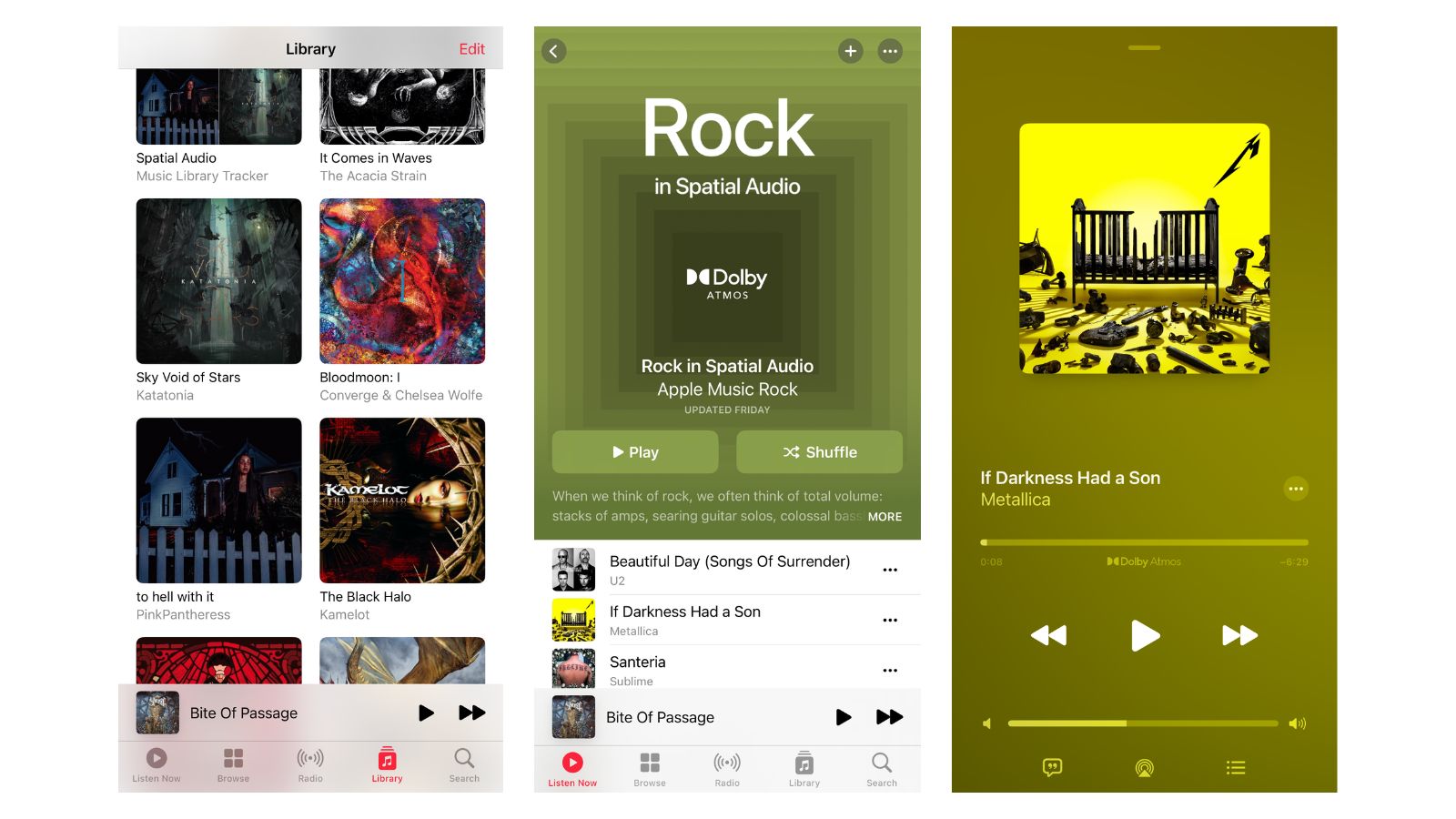
Apple has gone all in on Spatial Audio on its music streaming platform, recently offering more revenue to artists and labels that use the format. Apple wants to encourage more artists to use the format, so that Apple Music has more Spatial Audio tracks to tempt users from competing services like Spotify.
Artists and labels appear to be discouraged, however — a number of different indie record producers are not happy with the new revenue decision from Apple’s camp.
Spatial record discrimination?
The Financial Times broke the news, and it’s all down to Spatial Audio’s use of the Dolby Standard for surround sound. Apple’s Spatial Audio uses a form of Dolby Atmos to make the music sound like it's coming from all around you, and that costs money for producers to use.
Recording a song in Spatial Audio, including all of the other costs involved in the recording process, adds a further $1,000, according to executives. That would, for example, mean that Metallica’s latest output, 72 Seasons, will have cost the band (or EMI, its record label) an extra $12,000 to record the whole thing in Spatial Audio so that you can hear James Hetfield shout in surround sound.
For labels like the aforementioned EMI, and hugely successful bands like Metallica, that’s not going to be all that much in the grand scheme of things. For smaller artists and labels, however, it’s going to be a much bigger ask. Beggars Group, Partisan Records, and Secretly, some of the biggest indie labels that look after some of music's most recognizable names, have already shared some concerns about Apple Music’s new royalties position.
The main issue is that Spatial Audio tracks won’t net you more money in total — instead, the report tells us, Apple “is not paying more money in total: rather, that extra 10 percent will come out of a fixed pot of money. As a result, songs that are not 'spatial' will receive less money.” For record labels, this means that they could stand to make less money unless they adapt their output to Spatial audio. One unnamed senior record label executive says "it’s literally going to take the money out of independent labels", as the shared money pot would find more going to the record labels that can afford the upgrade.
It all adds up to unhappy record companies and artists that are looking to either sort things out with Apple or leave the platform entirely — after all, some of these companies are now facing reductions in revenue of 5-10% if they don’t take up the expensive Spatial Audio format. A perfect storm of badly thought-through format uptake.







